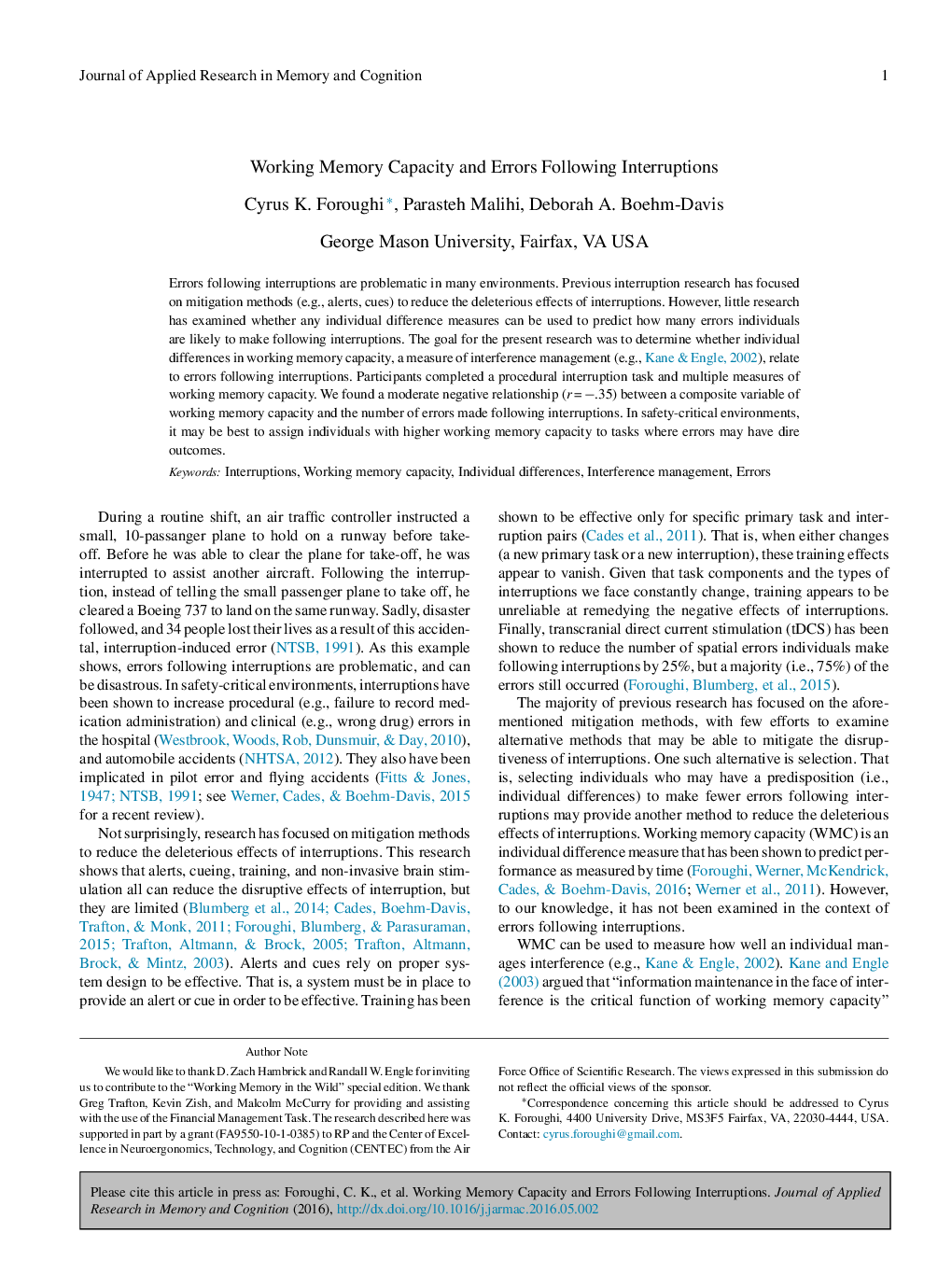| Article ID | Journal | Published Year | Pages | File Type |
|---|---|---|---|---|
| 5034068 | Journal of Applied Research in Memory and Cognition | 2016 | 5 Pages |
Abstract
Errors following interruptions are problematic in many environments. Previous interruption research has focused on mitigation methods (e.g., alerts, cues) to reduce the deleterious effects of interruptions. However, little research has examined whether any individual difference measures can be used to predict how many errors individuals are likely to make following interruptions. The goal for the present research was to determine whether individual differences in working memory capacity, a measure of interference management (e.g., Kane & Engle, 2002), relate to errors following interruptions. Participants completed a procedural interruption task and multiple measures of working memory capacity. We found a moderate negative relationship (r = â.35) between a composite variable of working memory capacity and the number of errors made following interruptions. In safety-critical environments, it may be best to assign individuals with higher working memory capacity to tasks where errors may have dire outcomes.
Related Topics
Social Sciences and Humanities
Psychology
Applied Psychology
Authors
Cyrus K. Foroughi, Parasteh Malihi, Deborah A. Boehm-Davis,
